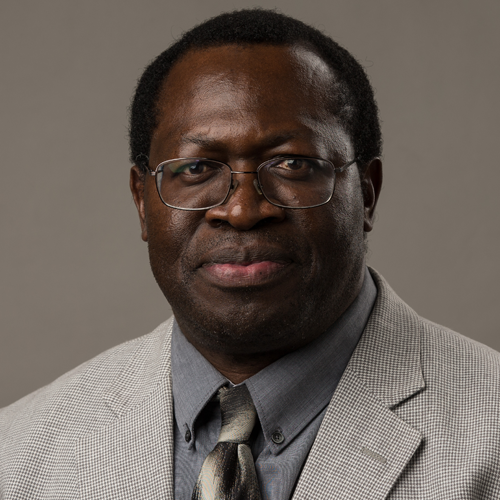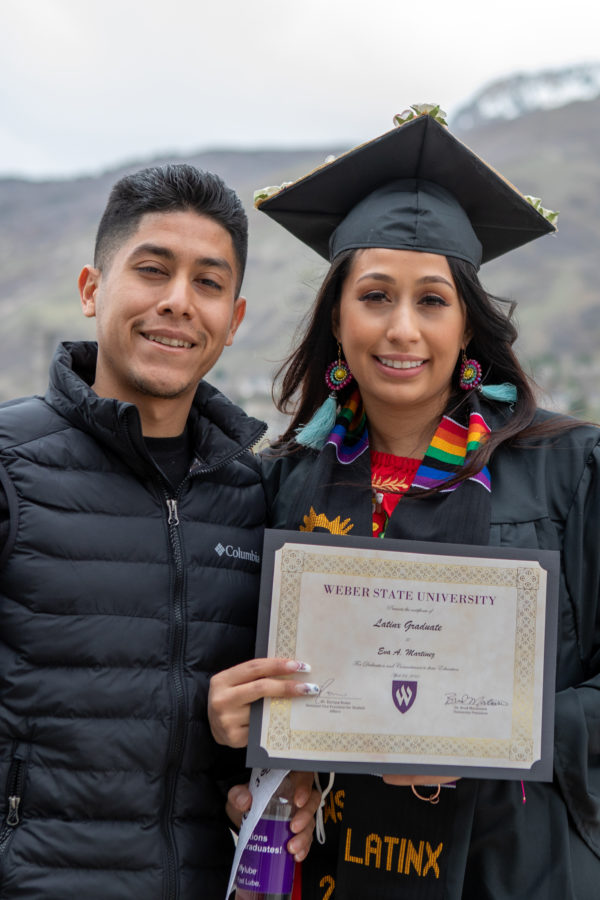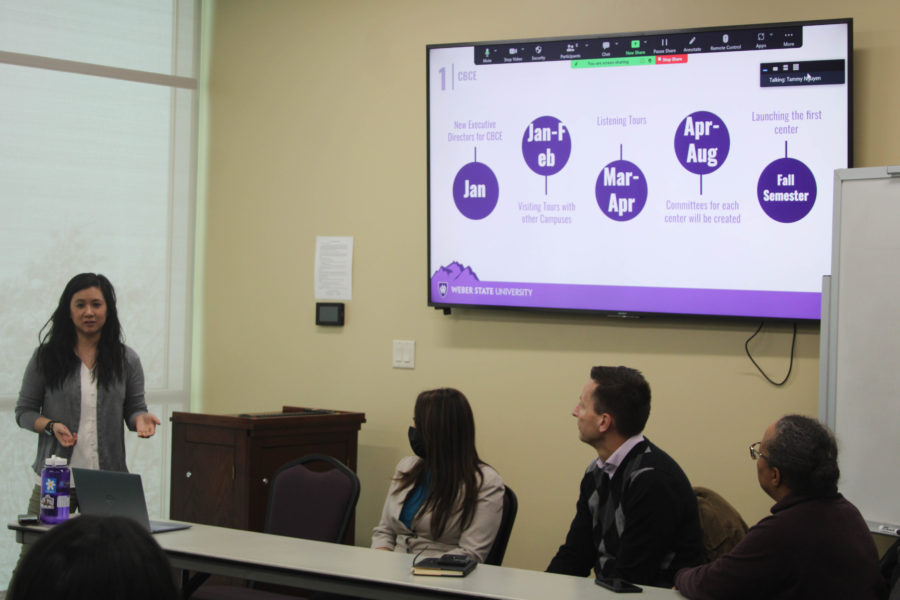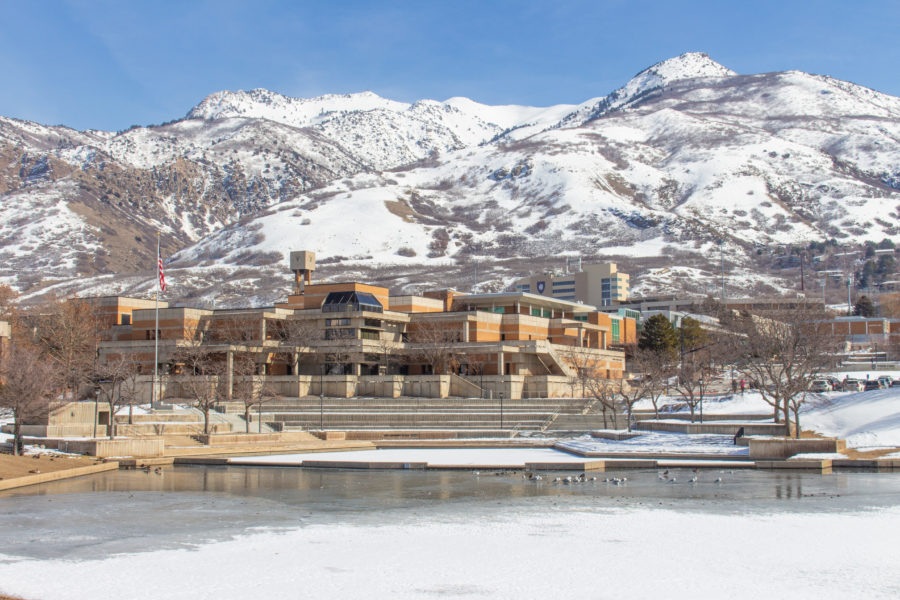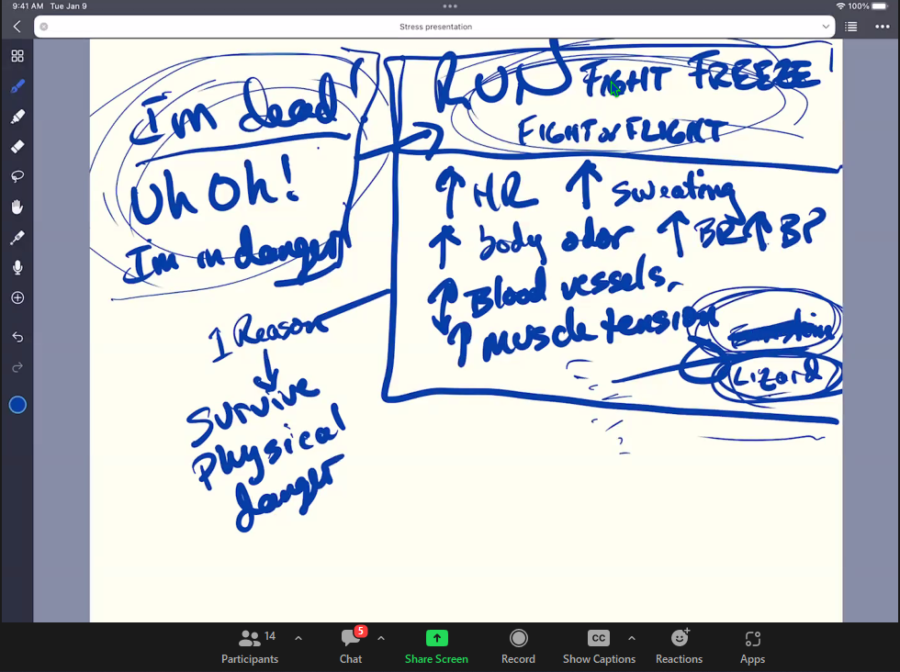
As the University of Utah decides whether to continue using the Utes as a school symbol, the Weber State University Student Association and American Democracy Project took the question into their own hands with the Issues Trial.
David Pachenco, WSU alumnus and attorney, glanced at Chuck Kaiser, visiting professor of business administration, as they both took the stage in the Shepherd Union Ballrooms on Wednesday morning. The two lawyers were to take opposing sides and debate whether or not using Native Americans as mascots in the NCAA should continue.
Kaiser took the position of con, Pachenco pro. It was made clear prior that their debate stances aren’t reflective of their personal opinions.
“I will freely admit that there are many offensive names being used in sports today as a result of political ignorance and cultural ignorance,” said Pachenco during his opening statement. “What does the Seminole Nation think of the Florida State mascot?”
For Kaiser’s opposing argument, he spoke about how stereotyping has a negative effect on the 540 or so sovereign nations that make up America’s native populations.
“Some people say that this is honoring heritage, bringing forth things that we otherwise wouldn’t see if we didn’t have an Indian mascot . . . But can you imagine going to a football game where someone is dressed in blackface?” Kaiser said. “Yet at a football game with an Indian mascot, fans and mascots alike come in war paint.”
The debate went back and forth between the two, and before their final statements could be given, the audience could participate in a Q-and-A segment. Nick Hilton, a member of the LEAD Team of WSUSA, posed the question of whether other mascots that have to do with culture, like the Fighting Irish, should also be under review to be removed from the NCAA and the sporting world.
In Kaiser’s rebuttal, he said there is a difference. Fictional characters such as leprechauns are a far cry from a depiction of Irish people, while Native Americans are a real race of people.
“Is that a debate we want to get into and start the slippery slope, saying, ‘Sorry, this is offensive to a group and you are unable to use it’? Where does that end and where does that get us?” asked Pachenco, who added that the people in Louisiana probably don’t like the University of Miami mascot, the Hurricanes.
“I kind of didn’t have a big opinion before (the debate),” Hilton said. He disclosed that he is still for Native American mascots if the nation or tribe in question isn’t offended.
Some schools and universities that have permission from certain tribes to use the mascots are bound by contract to offer tuition waivers or scholarships to Native American students.
Tashina Barber, the Native American students senator, said it was a pretty good debate, but she is in the middle because there is a huge portion of Native Americans who disagree with the mascots.
“At a point, it’s cool, but it’s a part of me that thinks that if we are going to stand together and say it’s not OK, then we need to really make a stand and not be bought out,” she said.
Barber said that, although she identifies with her own specific tribe, the term ‘redskin’ is offensive.
“I don’t ever call myself a redskin,” Barber said. “It’s different, but to an extent it is kind of an honor, but at the same time it’s when the rivalry starts; it’s when people start to demean the cultures.”
Ashlee Cawley, director for the American Democracy Project at WSU, organized the Issue Trial and mediated the debate. She said the mission of the project is to “promote civic engagement, educate future citizens.”
The event was held in conjunction with Native American Heritage Month, and is a precursor for the Deliberative Democracy discussion held in spring semester.















